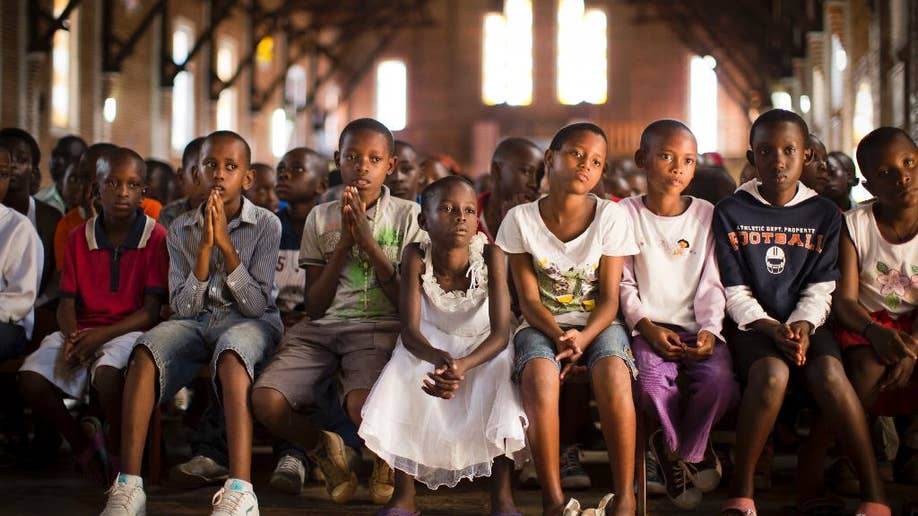The question of Rwanda’s identity as a Christian nation is poignant, particularly when one considers the harrowing events of the 1994 genocide. The intersection of faith, culpability, and reconciliation presents a complex narrative that defies simplistic classification. This exploration delves into various dimensions of Christianity in Rwanda, encompassing historical context, contemporary practices, and the overarching influence of faith post-genocide.
Rwanda, a small, landlocked country in East Africa, became predominantly Christian during the colonial era. The arrival of missionary groups—primarily from Catholic and Protestant sects—during the 19th century paved the way for widespread conversion. By the late 20th century, around 90% of Rwandans identified as Christian, illustrating the profound penetration of Christianity into Rwandan society. However, this overwhelming adherence to a faith system is intertwined with a paradox: the very churches that played roles in conversion also became implicated in the atrocities of genocide.
The genocide that erupted in April 1994 was brutal. An estimated 800,000 people, primarily Tutsis, were slaughtered in just 100 days. Disturbingly, some clergy and congregations were complicit, either by directly participating in the violence or by remaining passive witnesses. This complicity has led to a crisis of faith among many Rwandans, forcing a reckoning with the implications of Christianity in their national narrative. The question arises: how can a religion associated with compassion and forgiveness also be associated with such profound betrayal?
In the aftermath, reconciliation became paramount for a nation torn asunder. Rwandan society, with its scars still fresh, turned toward restorative justice as a means of healing. The Church emerged as a pivotal institution in this process, re-evaluating its role and responsibility within the community. Many Christian leaders sought to provide pastoral care, facilitating dialogues between perpetrators and victims, fostering an environment where forgiveness could germinate amidst deep-seated grievances.
One of the most significant developments in post-genocide Rwanda has been the concerted effort towards interfaith dialogue. Various religious leaders have recognized the necessity of unity in diversity, advocating for mutual respect and understanding among different faiths. This shift reflects a broader acknowledgment that healing requires the combined efforts of all denominations, fostering a holistic approach to national reconciliation. Churches have begun to engage in community service projects, weaving themselves into the fabric of society in a proactive and constructive manner.
However, the road to recovery remains fraught with challenges. Many survivors grapple with their faith, questioning how a benevolent God could allow such atrocity. Theodicy—the vindication of divine goodness despite the presence of evil—comes into stark relief here. Various theological interpretations have emerged, attempting to reconcile the existence of evil with a just and loving God. Pastoral care often involves confronting these theological dilemmas, offering support and potential answers in times of profound existential crisis.
Moreover, the discussions around faith after genocide extend to the importance of embodying faith through action. Christian teachings emphasize love, compassion, and empathy—qualities that must manifest in tangible ways to bridge the chasm created by violence. Thus, Rwandan Christians are increasingly promoting a form of faith that prioritizes social justice and communal support. The integration of faith into community service projects has become a hallmark of the modern Rwandan Christian identity, demonstrating how spirituality can and should translate into social responsibility.
The landscape of Christianity in Rwanda is also marked by the emergence of new movements and expressions of faith. The post-genocide period has witnessed a flourishing of evangelical and charismatic churches that emphasize personal salvation and the transformative power of the Holy Spirit. These congregations often appeal to younger generations, providing a framework for identity and belonging that transcends ethnic divides. They champion messages of hope and resilience, making faith a dynamic force for national unity.
Nonetheless, one cannot overlook the resurgence of traditional practices and the influence of African spirituality within the Christian context. As some Rwandans seek to reconcile their indigenous beliefs with Christianity, there is a burgeoning conversation around syncretism. This challenges the predominantly Western interpretations of Christianity, suggesting that faith can be both an anchor in tradition and a vehicle for modernity. Such conversations reflect the complexity of belief in a rapidly changing world, where faith must respond to pressing socio-political realities.
As Rwanda continues to heal, the question of whether it is a Christian country takes on new meaning. It is not merely a matter of religious adherence but rather an exploration of how faith can catalyze transformation at both personal and communal levels. The nation’s identity as Christian influences its culture, politics, and social fabric, yet it is continuously shaped by the lessons learned from a tumultuous past.
In conclusion, Rwanda’s journey towards understanding its Christian identity is a multifaceted endeavor. Faith is evolving, as are its repercussions in the spheres of reconciliation, justice, and community development. The legacy of genocide casts a long shadow, yet it has also catalyzed a profound transformation in the relationship between Rwandans and their faith. As Rwanda navigates the landscape of post-genocide recovery, the interplay of faith, memory, and hope will remain integral to its national identity and collective future.



